Climate Resilience
-
Home
-
Our Work -
Climate Resilience
Climate Resilience and Disaster Response
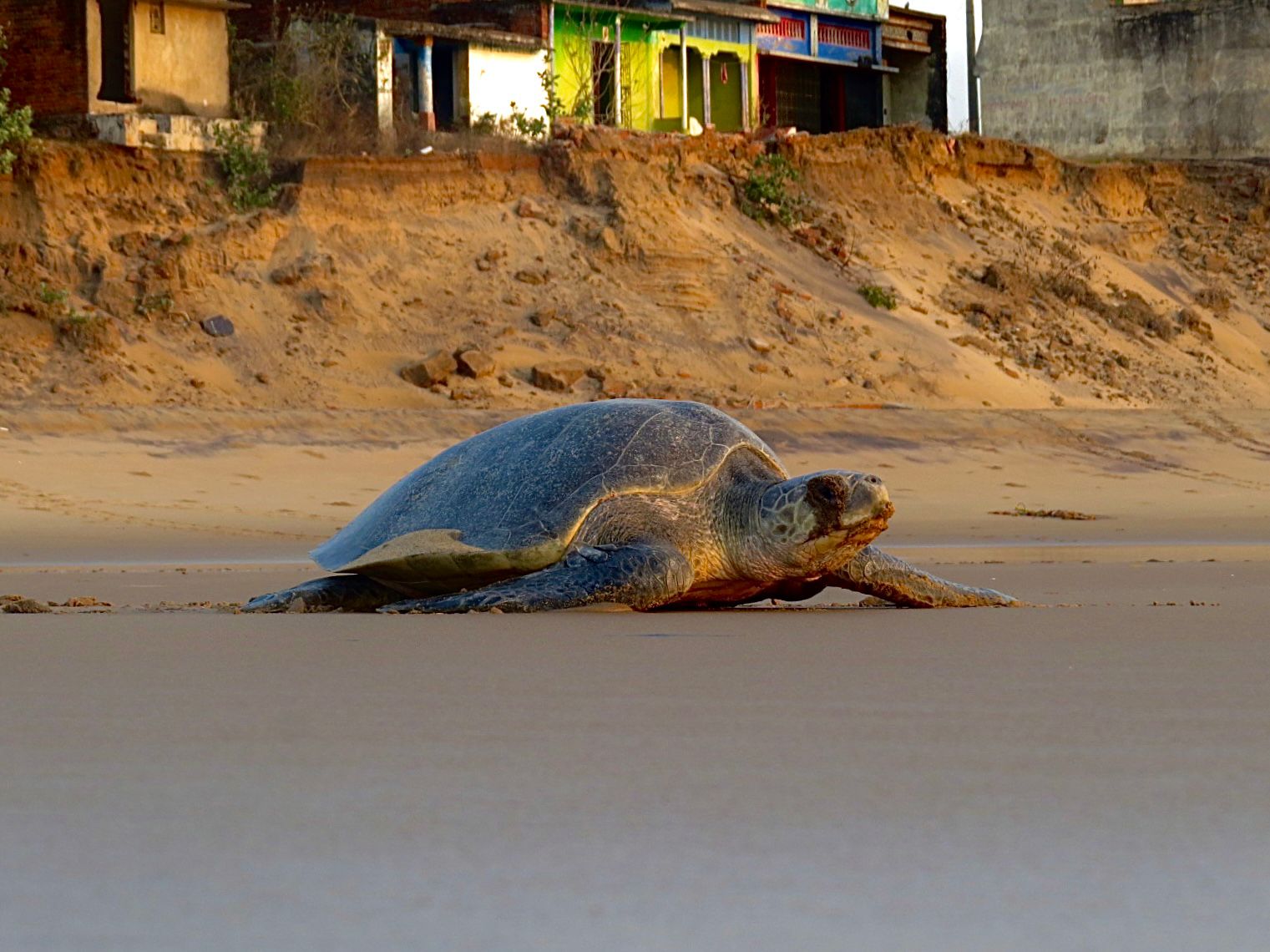
Why Climate Change Matters
Odisha is among the most climate-vulnerable states in India. The state experiences 1–2 major cyclones annually, along with frequent floods, droughts, heatwaves, and saline intrusion. Cyclone Fani in 2019 alone impacted over 16 million people. Coastal erosion, habitat loss, and shifting rainfall patterns continue to threaten the livelihoods of smallholder farmers and fishing communities.
Climate-induced migration is on the rise, particularly among coastal and tribal populations moving into urban slums without adequate support systems.
Without urgent action, these disasters will only intensify, pushing vulnerable communities—especially Dalits, tribal groups, women, and youth—further into poverty and displacement.
Our Approach
VIEWS integrates community-led, gender-responsive, and ecosystem-based solutions to strengthen climate resilience and disaster preparedness. Our interventions target both immediate disaster response and long-term adaptation, engaging youth, local institutions, and vulnerable families to build capacity from the ground up.
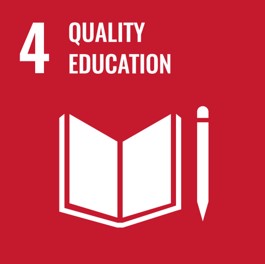
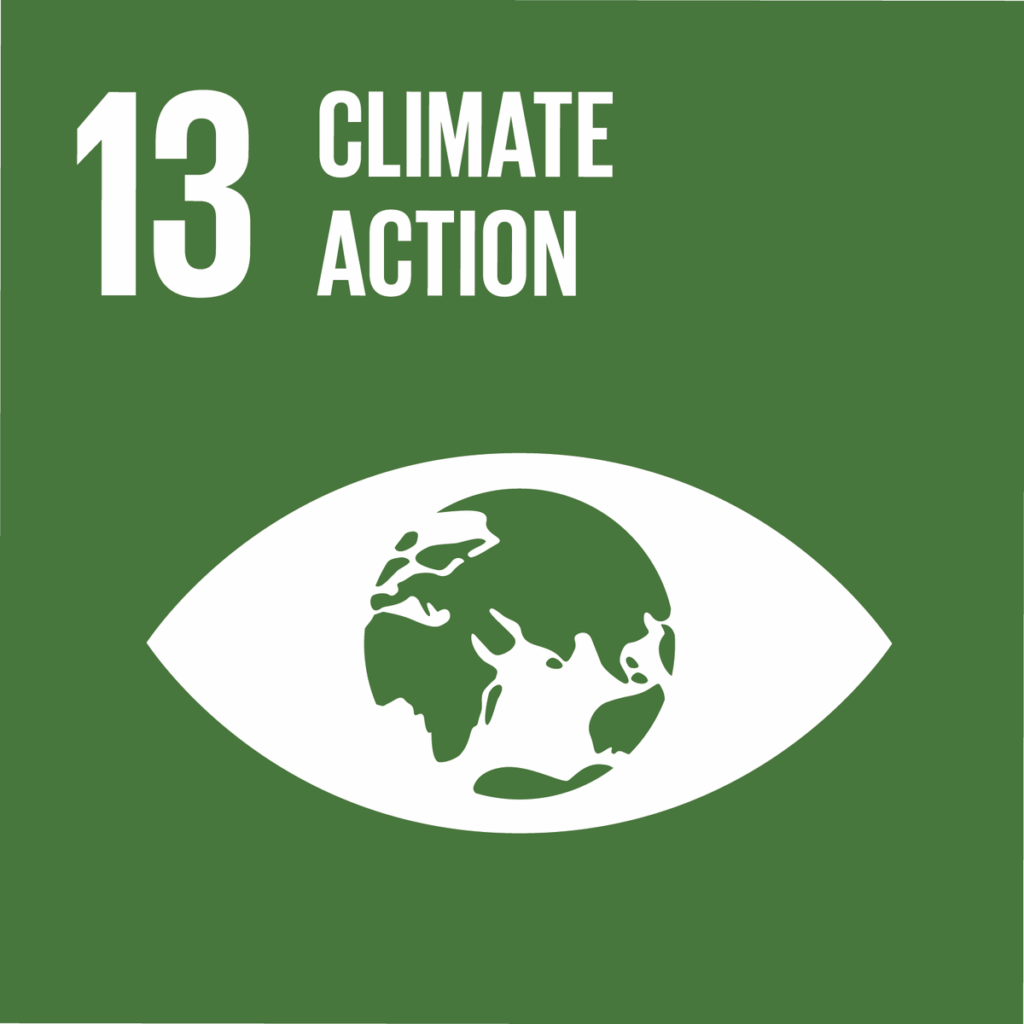
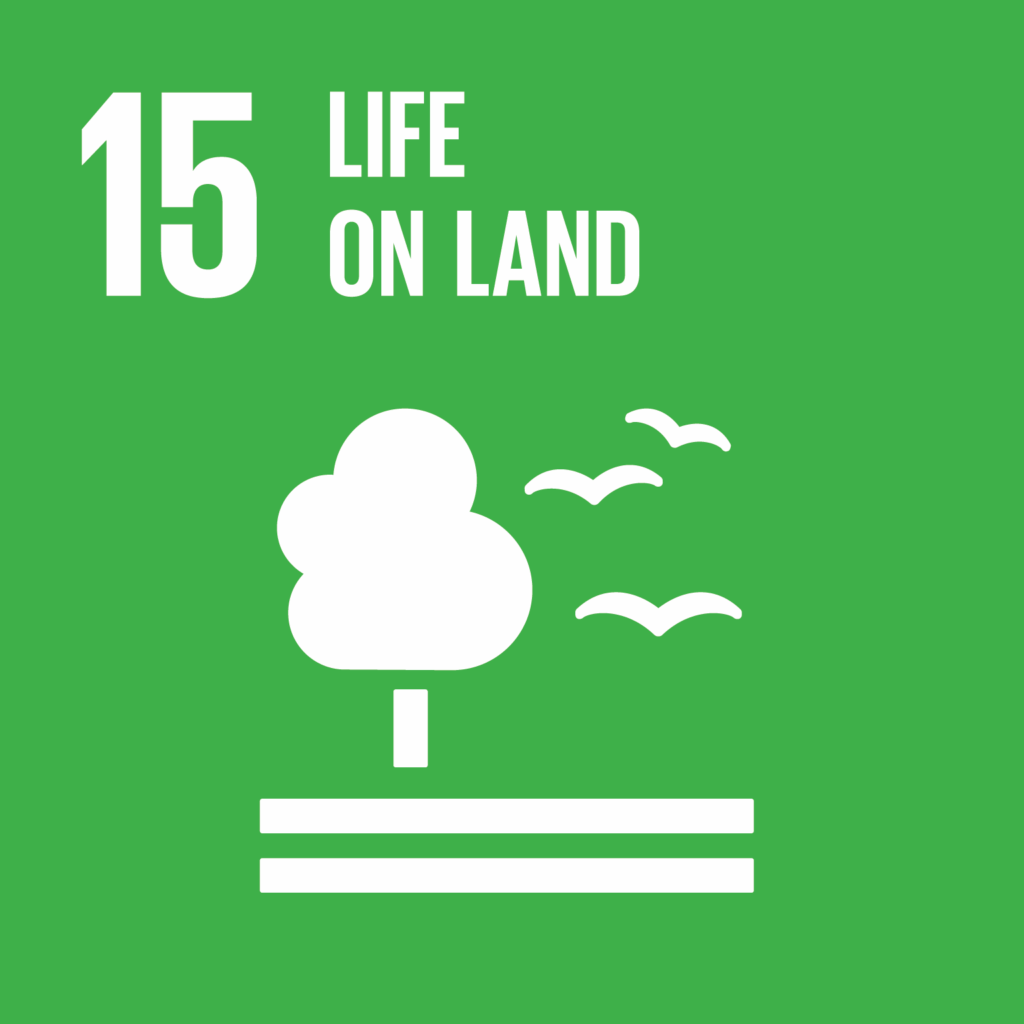
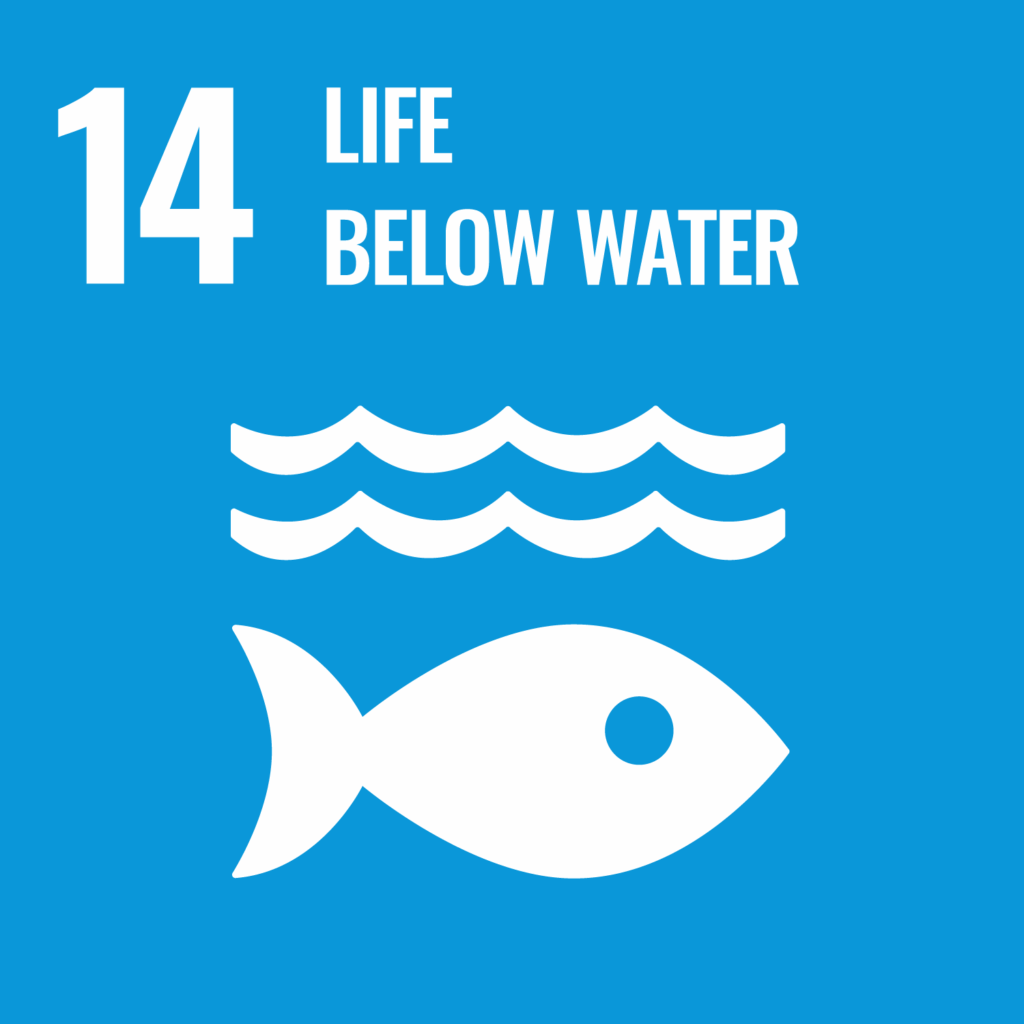
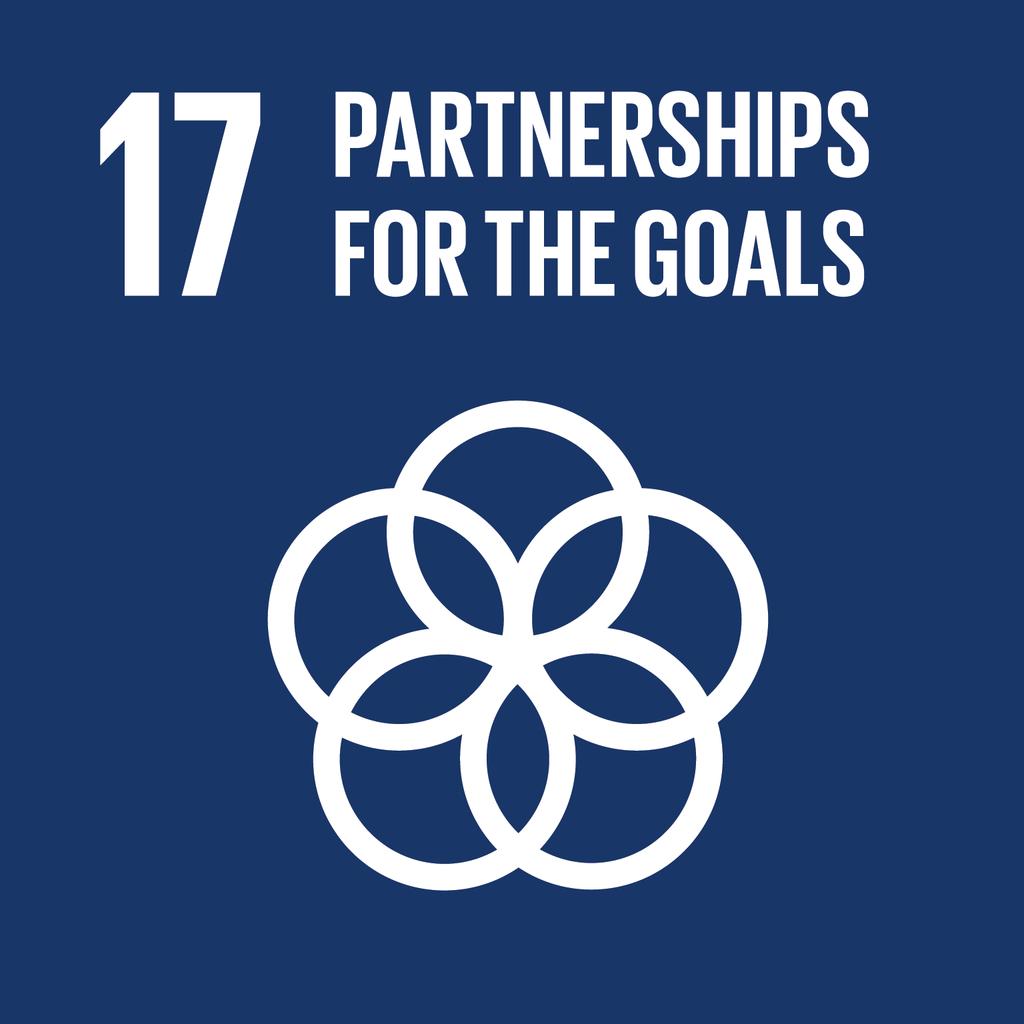

Key Components
Coastal Ecosystem and Conservation
VIEWS engaged coastal communities in coastal forest, beach cleaning and marine biodiversity conservation. We collaborated with youth and fisherfolk to protect endangered species like the Olive Ridley turtles and restore fragile coastal habitats, enhancing both ecological health and livelihoods.
![]()
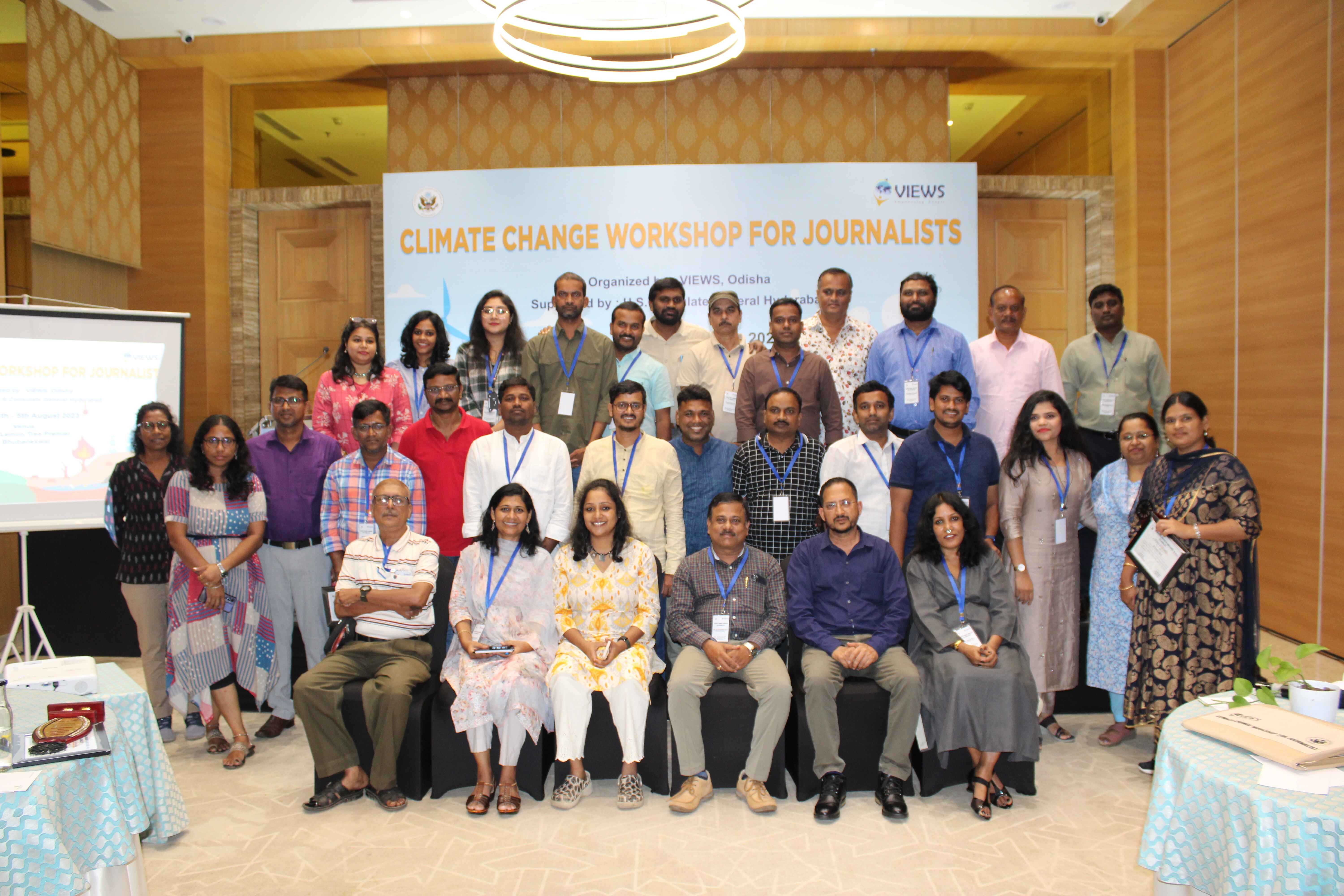
Journalists for Climate Reporting
Strengthening Media for Environmental Justice
VIEWS, with the support of the American Embassy, trained 102 journalists from Odisha, Andhra Pradesh, and Telangana in climate-sensitive reporting to enhance public discourse on climate change and environmental resilience. These journalists—representing television, print, radio, and digital platforms—were equipped with tools and knowledge to report on complex climate issues such as rising sea levels, erratic weather, climate-induced migration, and grassroots adaptation efforts.
The workshops focused on climate science communication, ethical storytelling, local case studies, and government policy analysis. Journalists were encouraged to amplify community voices, particularly those from tribal, coastal, and low-income areas most affected by climate change, thus bridging the gap between scientific data and public awareness.
Climate Literacy
VIEWS has been a catalyst for building climate literacy and awareness among marginalized communities, tribal youth, and students through localized workshops, community campaigns, and school-based climate clubs. By simplifying complex themes like climate justice, energy conservation, and sustainable living, we fostered climate-conscious behaviour—even among low-literacy populations—using visual tools, storytelling, and interactive games.
With support from the Australian High Commission, we trained 700 youth from 15 schools and colleges under the Youth for Climate Action Campaign, jointly organized by VIEWS and the Australian Consulate-General, Chennai. The campaign aimed to build climate awareness and critical thinking, and cultivated youth leadership in environmental action.
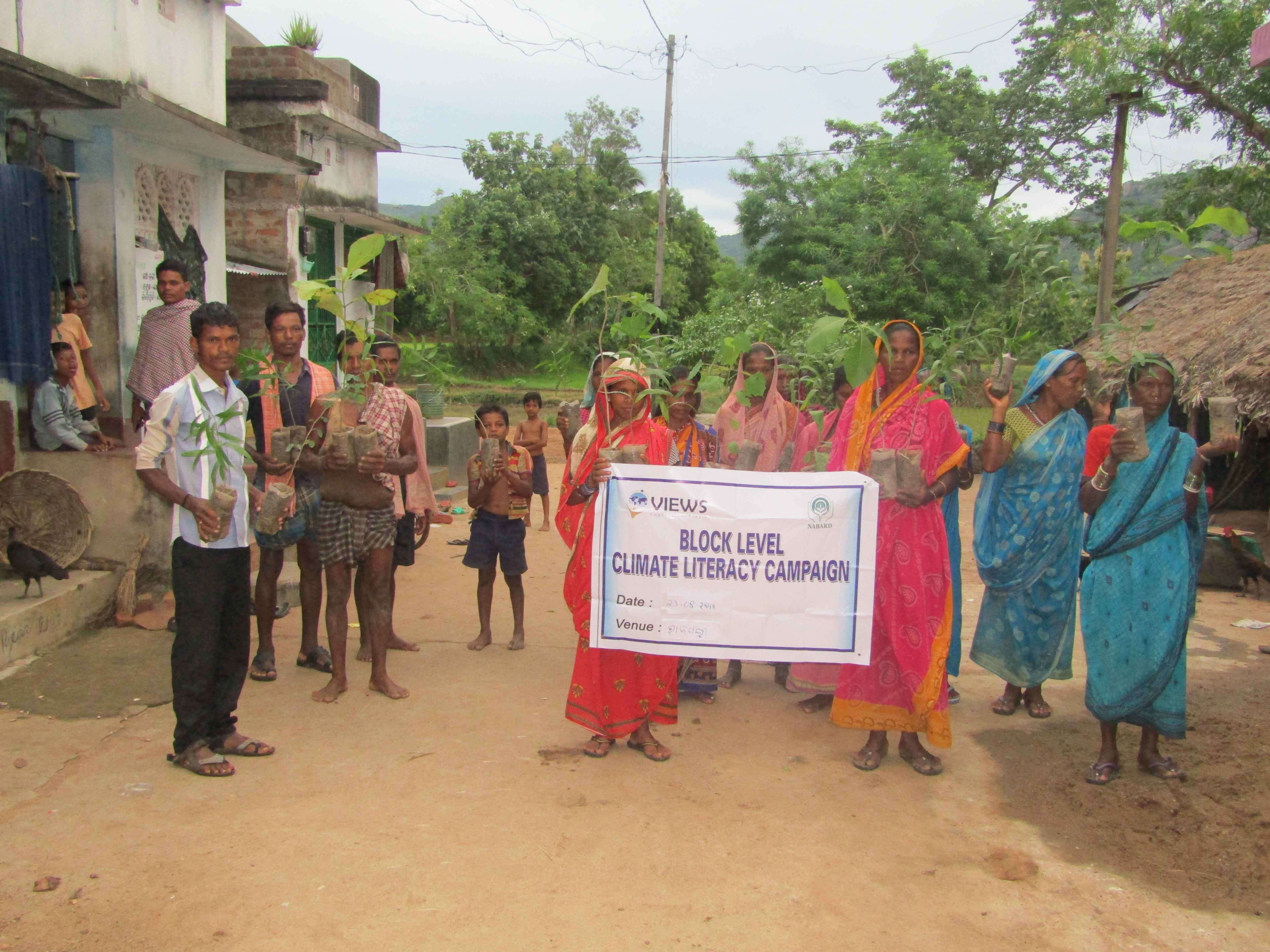
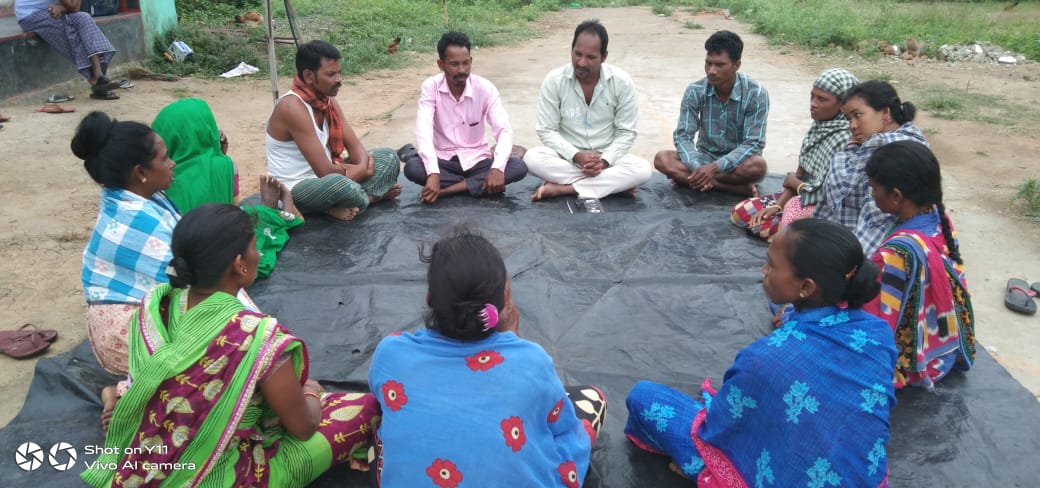
Disaster Risk Reduction
Strengthening Community Preparedness in Coastal Regions
VIEWS actively strengthened disaster preparedness in coastal and high-risk villages by training communities on early warning systems, evacuation planning, and emergency response protocols. With support from Global Green Grants fund (GGF), USA, we organized Community-Based Disaster Risk Management (CBDRM) trainings by engaging youth clubs, school children, and village disaster committees—especially in vulnerable fishing communities.
We facilitated the formation of village-level task forces and conducted school-based safety awareness camps to ensure that the most at-risk groups—particularly women and children—were equipped to respond effectively during cyclones and other climate-induced emergencies.
Climate Resilient Agriculture
Securing Livelihoods through Sustainable Farming Practices
In partnership with DASRA UK and Andhera Helife, VIEWS collaborated with small and marginal farmers, especially from tribal communities, to promote low-input, climate-smart agricultural practices. These included agroecology, drought-tolerant seeds, mixed cropping systems, and organic soil management—all aimed at minimizing crop losses and enhancing food security amid unpredictable weather patterns.
In the dryland districts of Gajapati, Mayurbhanj, and Ganjam, we trained farmers to adopt millet cultivation—a climate-resilient crop requiring minimal water. By introducing climate-smart techniques and localized demonstrations, farmers were able to adapt to changing climatic conditions while increasing yields and reducing dependency on chemical inputs
To ensure grassroots leadership and sustainability, VIEWS also nurtured a cadre of Eco Champions—trained community members who now mentor fellow farmers on climate-resilient practices.
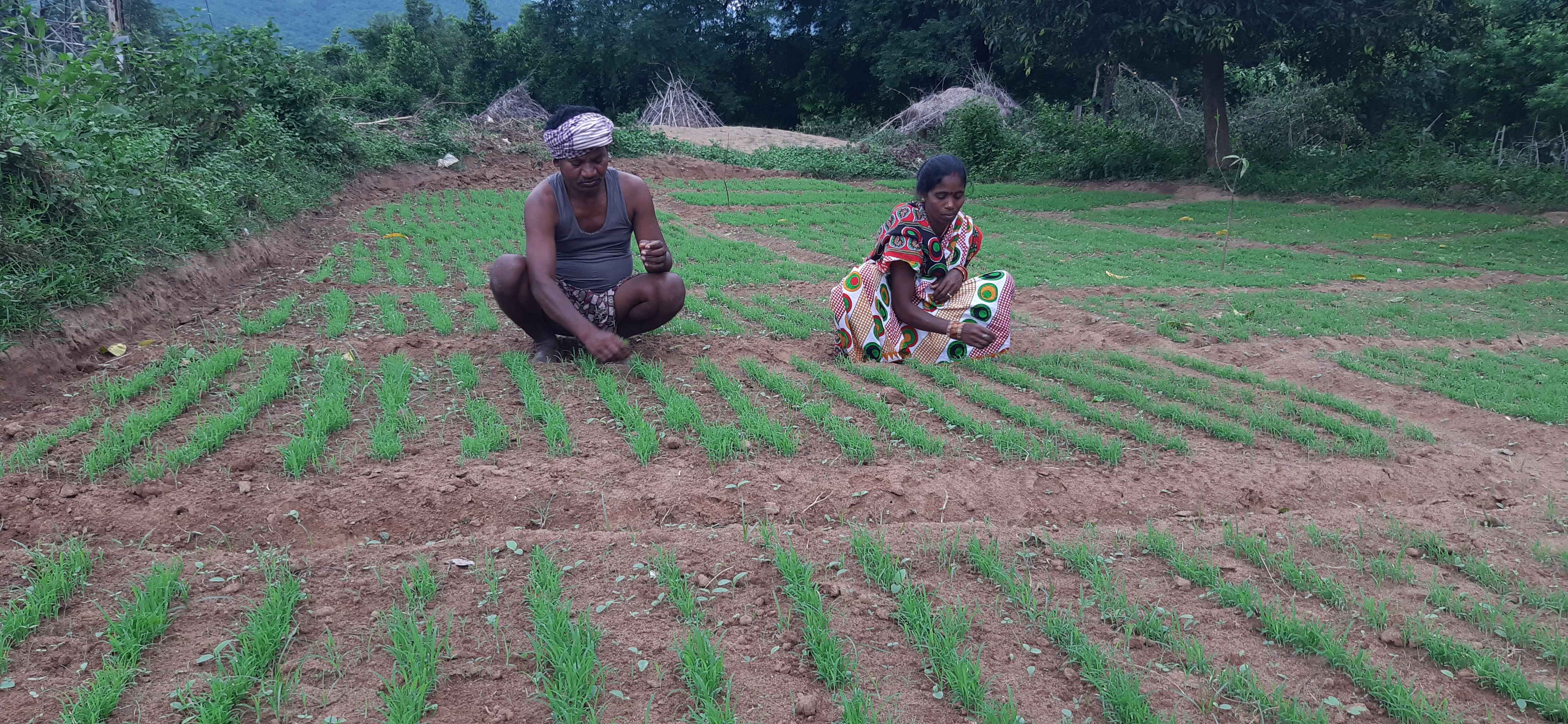
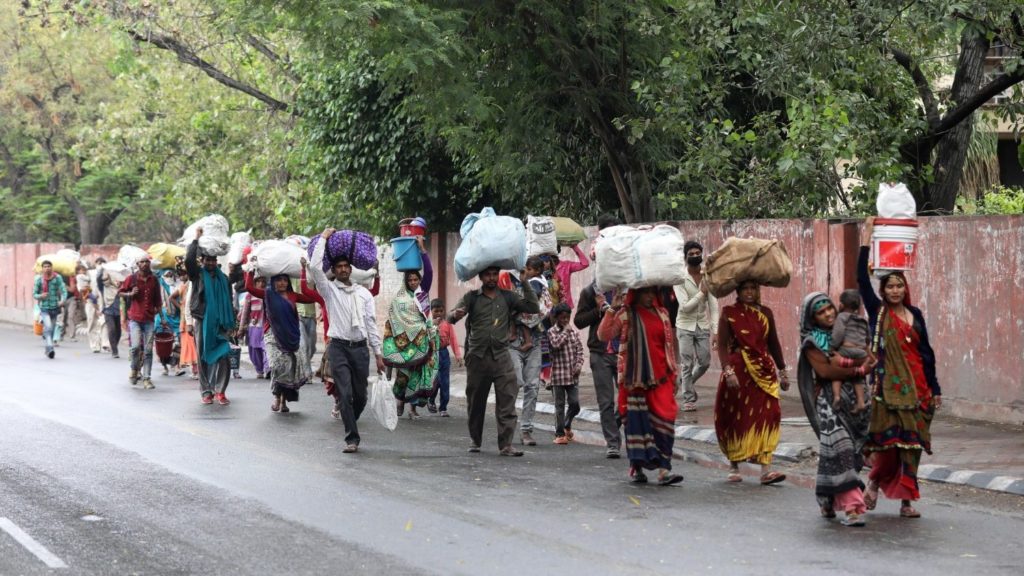
Climate-Induced Migration
Promoting Safe and Dignified Migration for Coastal Communities
With the support of Global Greengrants Fund, VIEWS implemented initiatives to address the growing challenge of climate-induced migration in coastal fishing villages. As rising sea levels, coastal erosion, and cyclones continue to displace communities, migration has become a survival strategy—often undertaken without adequate information, protection, or preparedness.
VIEWS promoted safe migration practices in 15 vulnerable coastal villages, especially among youth and seasonal workers. Through community trainings, risk mapping, and awareness campaigns, we educated families on legal rights, documentation, insurance, workplace safety, and entitlements. Special focus was placed on family reintegration, financial literacy, and continued education for children left behind.
We also worked closely with the fisheries and local panchayats to streamline migrant registration, ensure access to social protection schemes, and reduce exploitation.
Afforestation
Greening Communities and Restoring Ecosystems
To combat deforestation and the impacts of rising temperatures, VIEWS led community-driven afforestation efforts, resulting in the planting of over 25,000 native trees across tribal and coastal regions of Odisha. These green belts have played a vital role in microclimate regulation, soil conservation, biodiversity restoration, and carbon sequestration—while also creating green jobs for youth and women.
With support from NABARD and the Local Forest Department, we mobilized tree saplings and engaged women Self-Help Group (SHG) members as Eco Champions, turning afforestation into a grassroots movement for environmental stewardship. These women took the lead in planting, nurturing, and monitoring trees in the tribal villages of Chikiti, Patrapur, and Mohana blocks.
This initiative not only strengthened community ownership over natural resources but also fostered a deep sense of social responsibility and ecological consciousness, ensuring that the act of giving back to nature becomes a shared community value.
“Each tree we plant is a promise to future generations—a promise of shade, clean air, and climate hope.”
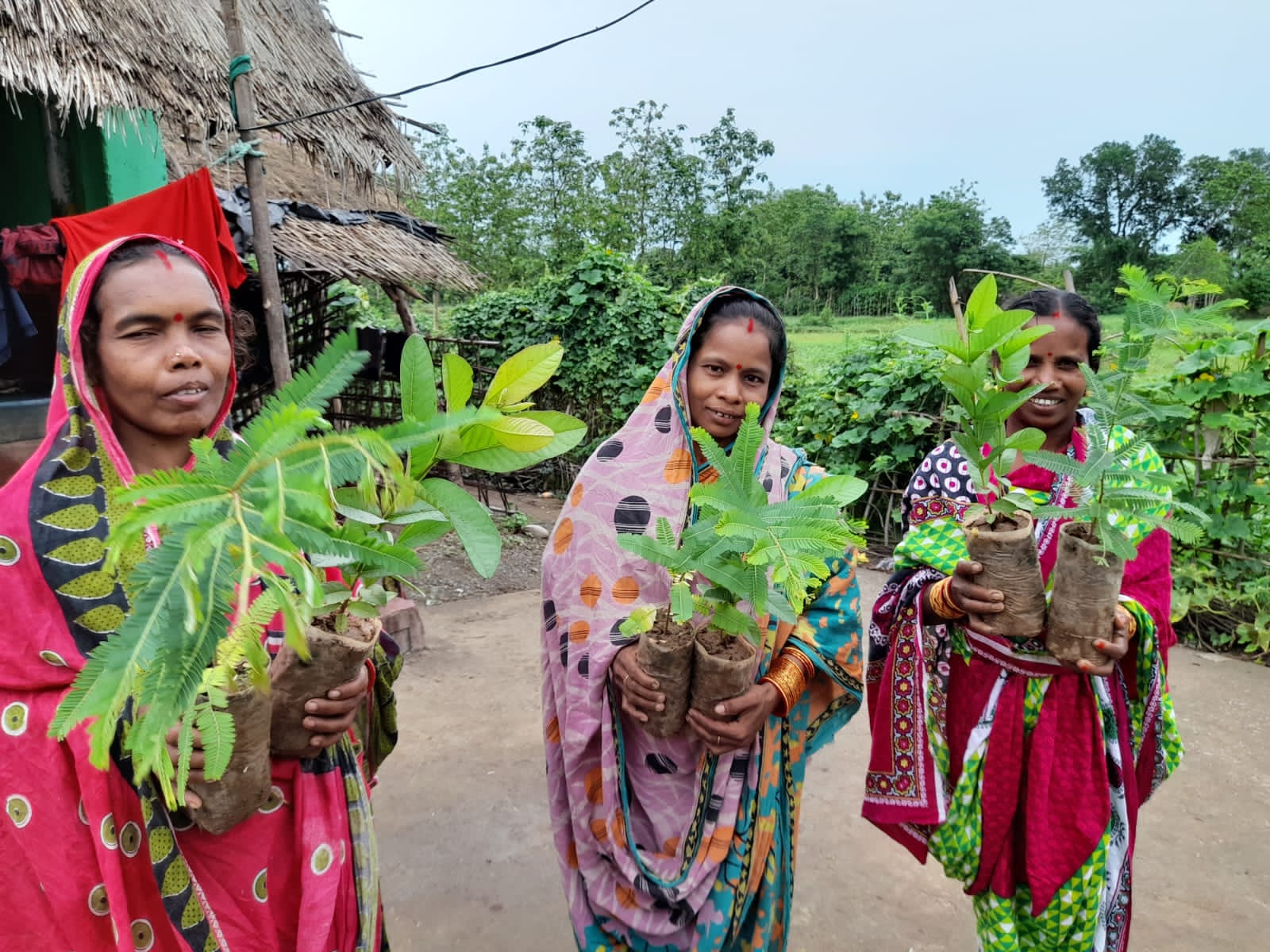
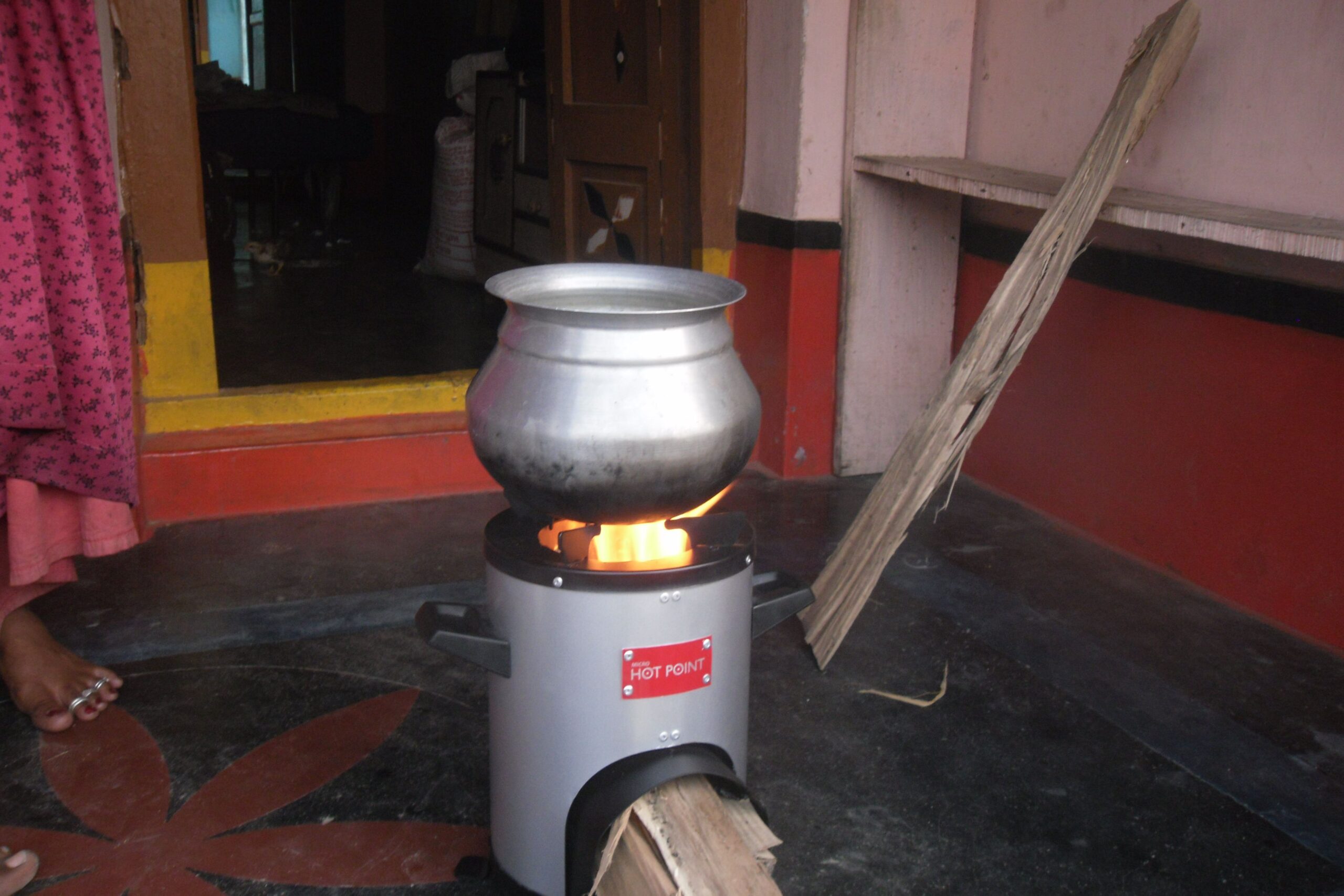
Clean and Green Energy
Empowering Communities with Renewable Solutions
VIEWS has championed the adoption of clean and renewable energy to reduce dependency on fossil fuels, enhance livelihoods, and promote environmental sustainability in underserved regions.In partnership with Centurion University, we co-developed a solar fish dryer, enabling women’s SHGs in coastal villages to produce hygienic dry fish, save processing time, and earn better market prices.
Waste Management
Turning Marine Waste into Livelihoods and Climate Action
VIEWS is leading innovative efforts in marine waste management by mobilizing women and youth in coastal fishing villages to collect, recycle, and creatively reuse ocean waste. This includes the collection of ghost nets, plastics, and sea debris that pollute beaches and threaten marine life.
With support from artisans, VIEWS helped transform marine waste into beautiful sea crafts and upcycled products, often inspired by fish and marine biodiversity. These eco-friendly products not only promote climate awareness and sustainability, but also offer a new source of income for poor and migrant fishing families—especially women.
We are now training local women and adolescents as ‘Ocean Warriors’ to lead beach clean-up drives and convert waste into art and utility items. Under the ‘Daughters of the Sea’ campaign, we also promoted plastic-free beaches across the coastal belt of Ganjam district.
VIEWS plans to scale this initiative by collecting marine waste from 27 coastal villages in Ganjam, engaging youth to establish start-ups that produce and sell sea crafts at beachfront markets and science exhibitions.
Through this initiative, VIEWS is combining environmental restoration with social enterprise, empowering communities to protect the ocean while building sustainable futures.
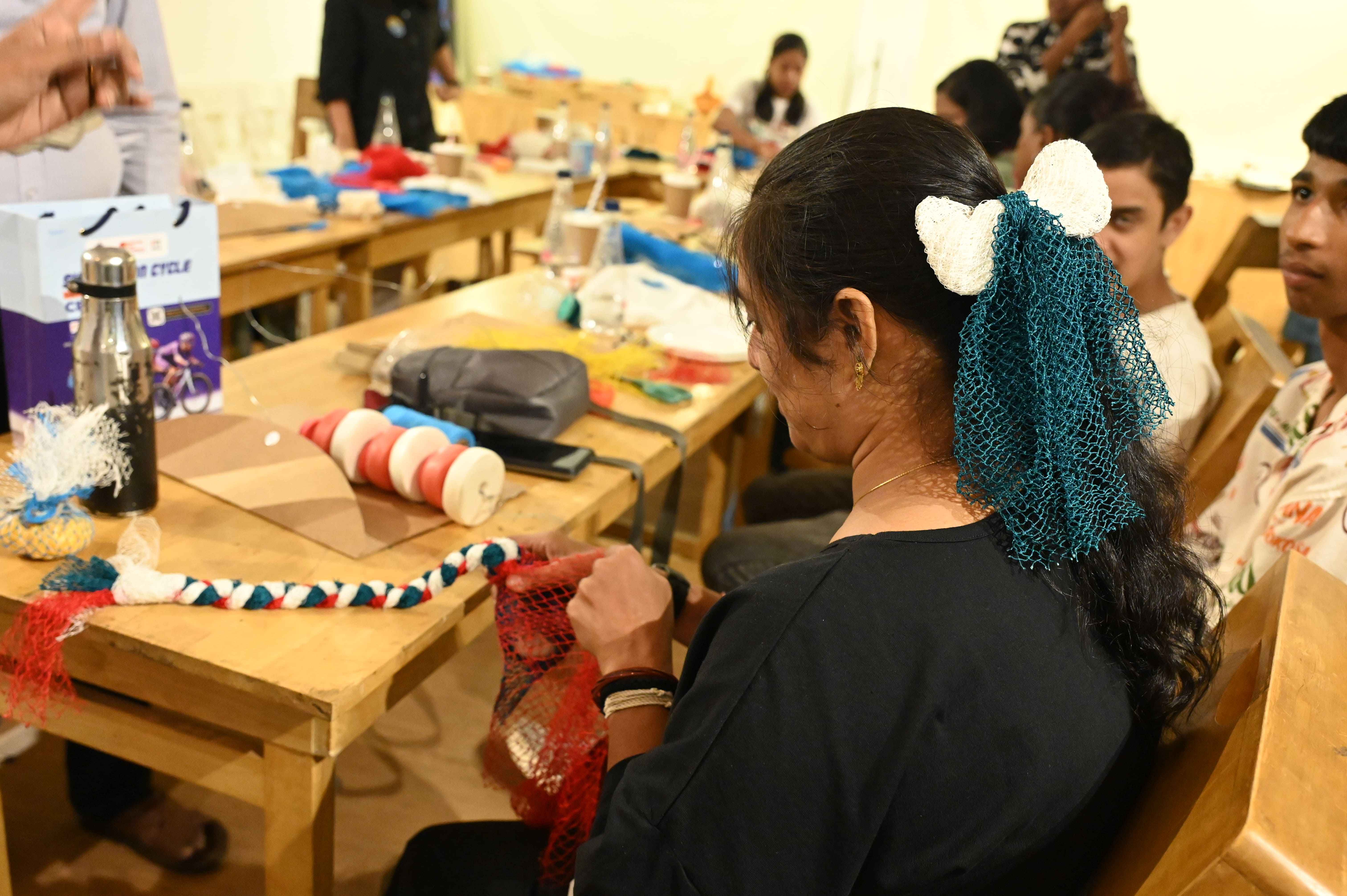
What They Are Saying?
“The training gave us fresh perspective. I now cover not just disasters, but the deeper causes and community solutions around climate change. It has transformed my journalism.”
Anuj Das,
Journalist, Kanak TV, Bhubaneswar
Before this, we didn’t know how important these turtles were. Now, we feel proud to protect them and our coastline.
Ch. Padmini
Climate Change Ambassador, Podempeta
“I collect marine waste, clean the beaches, and help create alternative livelihoods for fisherwomen in my village,”
Mr. Javili Titu,
Youth Leader, Ganjam
Our Commitment
Our Commitment
Through its climate resilience and disaster response programmes, VIEWS has demonstrated that climate action must be inclusive, community-driven, and youth-led. From empowering adolescents in slums to protect the coastline, to building farmer resilience in floodplains, our initiatives are not just about survival—but about hope, leadership, and sustainability.
“Climate resilience isn’t built in boardrooms—it grows from the courage of frontline communities and the actions of young people who choose to lead.”
— S. Bheema Rao, Executive Director, VIEWS
https://www.youtube.com/watch?v=sTTvTslfNFI
Coastal fishing communities facing sea-level rise and cyclones
Small and marginal farmers vulnerable to erratic monsoons and drought
Migrant and displaced families in urban slums
Youth and women as frontline agents of resilience
Key Achievements
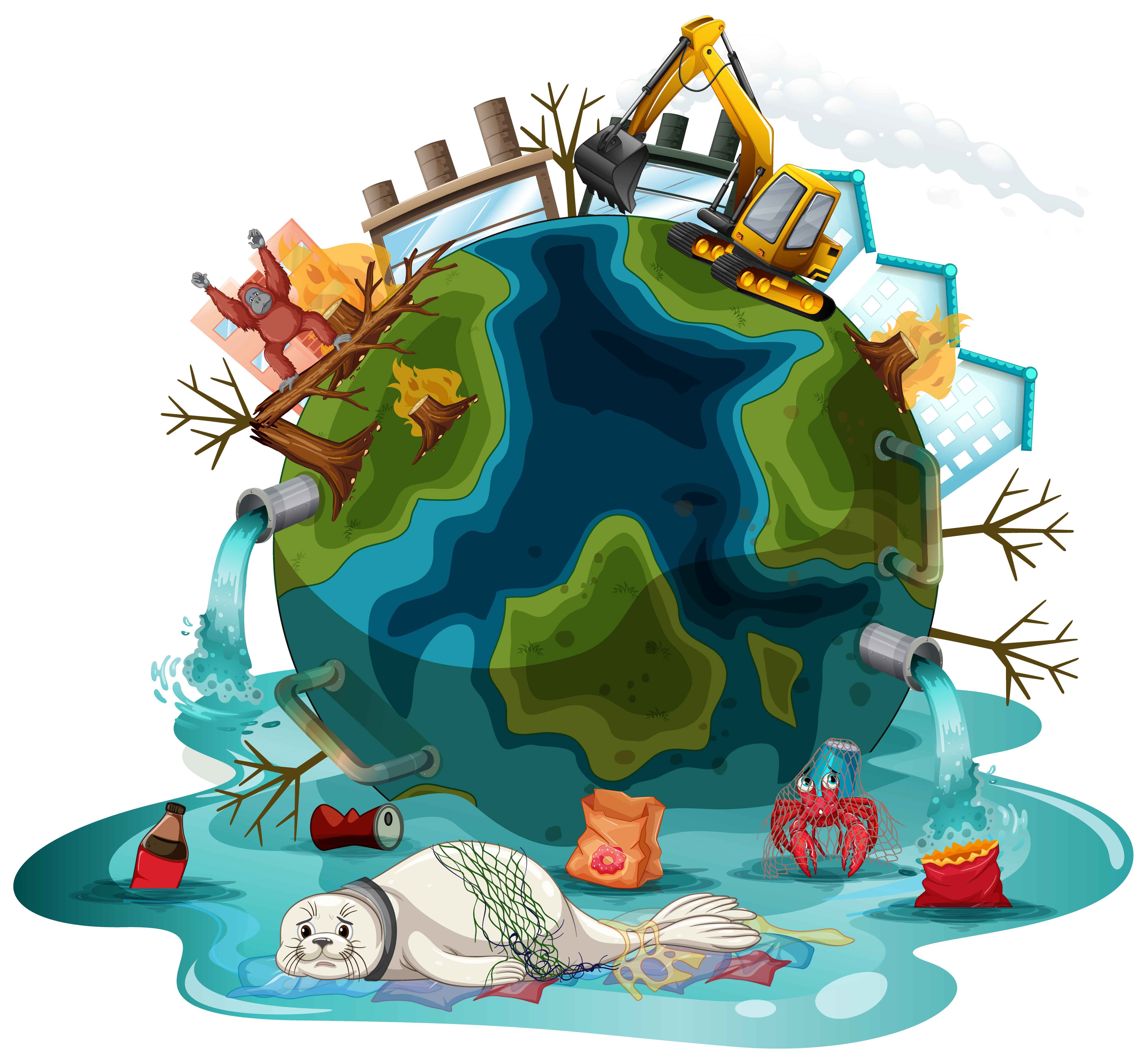
Emergency relief and rehabilitation provided to over 15,000 households during Cyclones Fani, Amphan, floods, and the COVID-19 crisis.
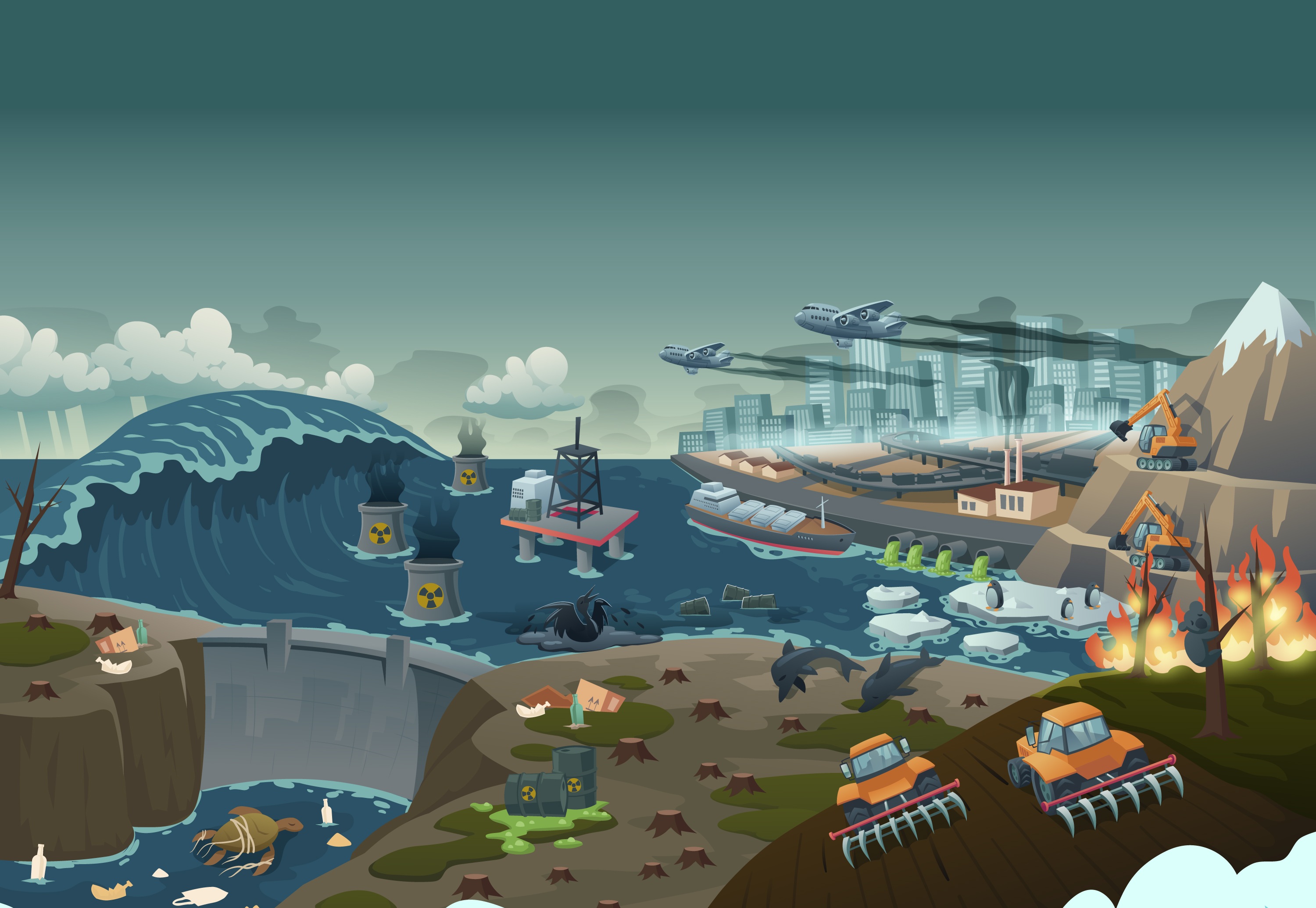
Community-based disaster preparedness strengthened in 15 coastal fishing villages.
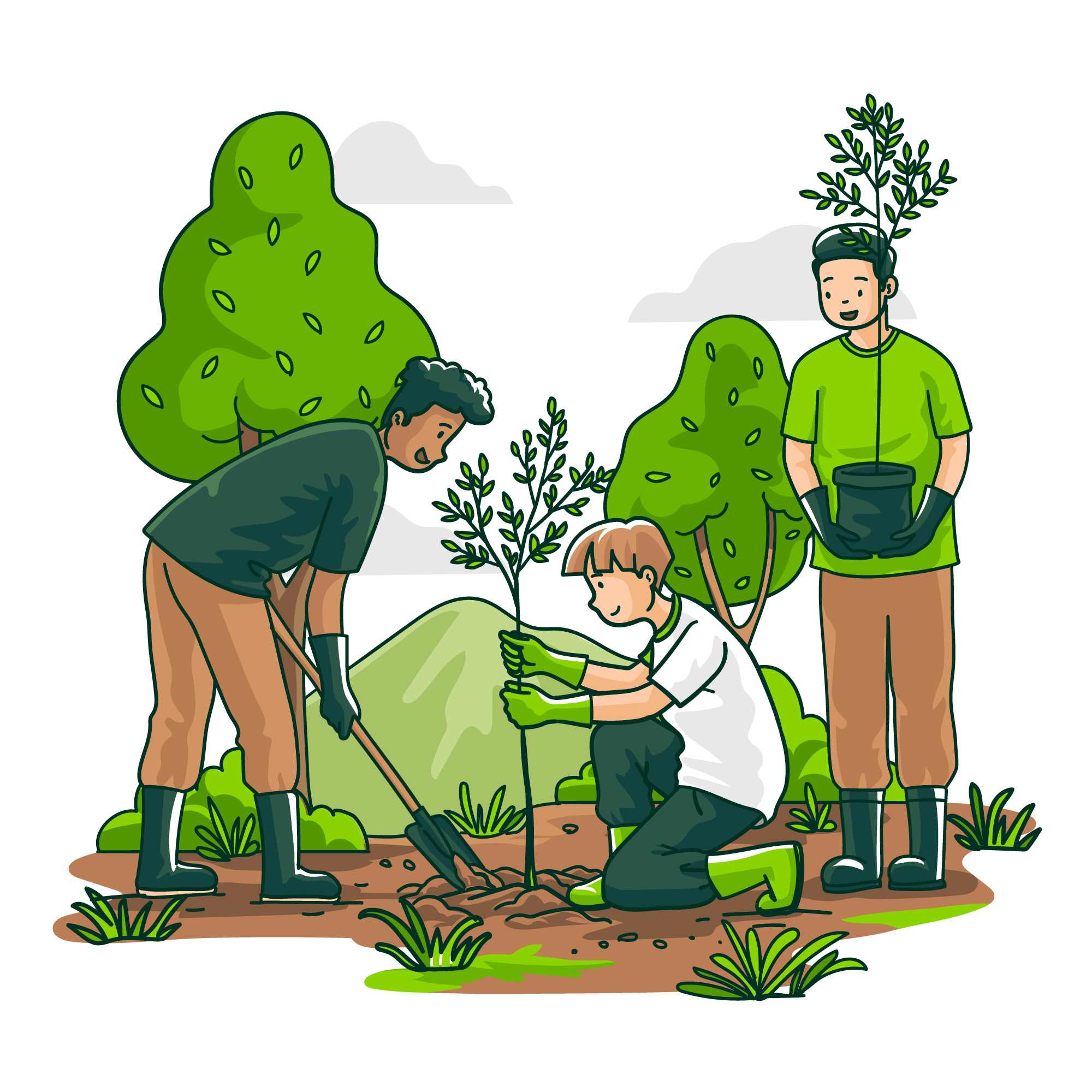
25,000+ trees planted through community-led afforestation efforts.

Promoted safe climate migration practices in 15 villages.

Engaged youth in 15 schools and 5 colleges through the Youth for Climate Action campaign.

Trained 102 journalists on climate change reporting.
